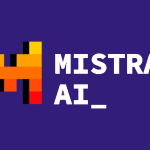Understanding Vanilla JavaScript: Why Mastering the Basics Matters
JavaScript has become an integral part of modern web development, powering dynamic and interactive websites. While there are numerous frameworks and libraries that developers rely on today, such as React, Angular, and Vue.js, there’s a growing emphasis on mastering Vanilla JavaScript—the pure, framework-free version of JavaScript. This article explores what Vanilla JavaScript is, why it’s crucial for developers, and how it serves as the foundation for more advanced JavaScript frameworks and libraries.
What is Vanilla JavaScript?
Vanilla JavaScript refers to the use of plain, standard JavaScript without any additional libraries or frameworks. It’s the raw, unmodified form of JavaScript that runs directly in the browser. The term “vanilla” is often used to describe the default or basic version of something, and in this context, it underscores the importance of understanding JavaScript in its most fundamental form.
Developers who are proficient in Vanilla JavaScript have a deep understanding of how the language works under the hood. This includes knowledge of core concepts such as DOM manipulation, event handling, data structures, functions, and control structures. Mastery of these basics is essential for troubleshooting, optimizing code, and leveraging advanced frameworks effectively.
Why Mastering Vanilla JavaScript is Crucial
- Strong Foundation for Learning Frameworks
Learning Vanilla JavaScript first provides a strong foundation that makes it easier to understand and work with JavaScript frameworks. Many popular frameworks like React, Angular, and Vue.js are built on top of JavaScript. By mastering the core language, developers can better appreciate the design decisions and functionalities provided by these frameworks, rather than treating them as magic boxes. This deeper understanding leads to more efficient and effective coding. - Better Debugging and Problem-Solving Skills
When working with frameworks, developers often encounter bugs and issues that are not easily resolvable without a strong grasp of the underlying JavaScript. Understanding Vanilla JavaScript enables developers to debug issues at the core level, identify performance bottlenecks, and implement optimizations. This skill is invaluable in complex projects where third-party libraries may introduce unexpected behavior. - Improved Performance and Control
While frameworks are powerful tools that can speed up development, they also introduce additional overhead. Vanilla Java Script allows developers to write leaner, more efficient code with greater control over the application’s behavior. This is particularly important for performance-critical applications, such as those involving real-time data processing or rendering on resource-constrained devices. - Framework Independence
By relying too heavily on frameworks, developers risk becoming too specialized in a specific toolset, which can be limiting in the fast-evolving tech landscape. Mastery of Vanilla JavaScript ensures that developers remain versatile and adaptable, capable of transitioning between different frameworks or even building their own custom solutions when necessary.
Key Concepts in Vanilla JavaScript
To truly master Vanilla JavaScript, developers must familiarize themselves with several key concepts:
- DOM Manipulation: The Document Object Model (DOM) is a hierarchical structure representing the elements on a webpage. Vanilla JavaScript provides the tools to traverse, modify, and interact with the DOM directly, enabling dynamic content updates without the need for a page reload.
- Event Handling: Events are actions that occur on a webpage, such as clicks, key presses, or form submissions. Vanilla JavaScript allows developers to handle these events by attaching event listeners to DOM elements, enabling responsive user interfaces.
- Asynchronous Programming: JavaScript is inherently asynchronous, meaning it can perform tasks like fetching data from a server without blocking the execution of other code. Understanding how to use promises, async/await, and callbacks is essential for managing asynchronous operations effectively.
- Data Structures: Arrays, objects, and functions are fundamental data structures in JavaScript. Mastery of these structures is crucial for organizing and manipulating data within an application.
- Functions and Closures: Functions are the building blocks of JavaScript, and closures are an advanced feature that allows functions to “remember” the context in which they were created. Understanding how to use functions and closures effectively is key to writing reusable and maintainable code.
When to Use Vanilla JavaScript
While Vanilla JavaScript is powerful on its own, there are situations where it is the optimal choice over frameworks:
- Small Projects: For small-scale projects or simple websites, using plain JavaScript can save time and reduce the complexity of the codebase. There’s no need for the overhead of a full-fledged framework when the task at hand is straightforward.
- Performance-Critical Applications: In scenarios where performance is a top priority, such as gaming or real-time applications, the lean nature of core JavaScript can offer significant advantages over heavier frameworks.
- Learning and Experimentation: For developers looking to deepen their understanding of JavaScript, experimenting with it in its pure form is the best way to learn. It encourages a hands-on approach to problem-solving and fosters a deeper appreciation for the language.
Conclusion: The Case for Vanilla JavaScript
Mastering Vanilla JavaScript is not just about learning a programming language—it’s about building a solid foundation for all future JavaScript development. Whether you’re a beginner or an experienced developer, investing time in understanding Vanilla Java Script will pay dividends in terms of debugging, performance optimization, and overall coding proficiency.
As the web development landscape continues to evolve, frameworks will come and go, but the core principles of JavaScript will remain. By mastering these fundamentals, you’ll be better equipped to adapt to new tools, solve complex problems, and create high-performance applications that stand the test of time.







